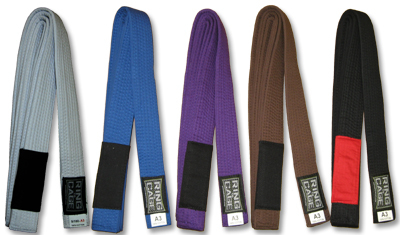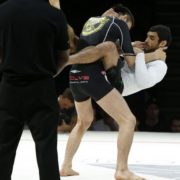Why the IBJJF rules can’t be fixed
The majority of BJJ competitions follow the IBJJF ruleset or a variation of it. The objective in a BJJ match is for two competitors to battle to be the first to submit the other. This simple objective sounds like fun for the competitors and promises excitement for the spectators. So why aren’t IBJJF matches like this? Why are they boring to watch, confusing to score and not a lot of fun to compete in?
If you’ve never competed under any other ruleset, competing under IBJJF rules is fun. Junk food is also delicious when you’re hungry. Our expectations are higher than that. We expect our skills to improve as we train. We expect our coaches and training partners to improve as well. Likewise, we should expect our competition rules to improve.
The IBJJF is aware that the rules have problems, which is why the rules are tweaked frequently but to no avail. The tweaks just add complexity and further obscure the underlying problem of the ruleset.
The problem with the IBJJF rules is with its fundamental assumption. When the rules were being formed, BJJ matches were won by the traditional strategy of: takedown/sweep → pass guard → knee on belly → mount/back → submit. Not all matches end in submission, so a natural solution is to award points to competitors based on their progression in this strategy. We see this with the points allocation.
- 2 points takedown
- 2 points sweep
- 2 points guard pass
- 3 points knee on belly
- 4 points mount or back
(The points for guard passing and knee on belly were later switched in one of the first rule tweaks).
This point allocation (and the mindset behind it) is the root cause of the failure of the IBJJF rules. The rules were initially intended to measure a competitor’s progression to the submission, but instead reward a competitor for following a particular strategy. Deviation from this strategy is penalised. This is a subtle point. Let’s look at examples of how the rules affect, rather than measure a match.
Movements progressing faster towards the submission aren’t rewarded as much as slower ones. Takedown straight to side control 2 points vs takedown to guard then guard pass 5 points. Sweep to side control 2 points vs sweep to guard then guard pass 5 points. Reversal from side control 0 points vs reguard and sweep 2 points.
The failure of the IBJJF rules is that it rewards and penalises strategies instead of the submission. This mindset allows the sport to become politicised. Consider the political effects of the current IBJJF ruleset:
- strategies involving leg attacks are restricted to make them almost useless
- particular guards are encouraged by disallowing slams from guard
- non-traditional guards are discouraged – specific rules for 50/50 position, anti leg reap rules
Let’s consider other grappling rules and how they guide the strategies used by competitors.
ADCC. No points in the first half of the match. This allows competitors freedom in the strategies they choose. The points are based on IBJJF with some tweaks. “Clean” sweeps and takedowns that bypass the guard are recognised. Pulling guard is penalised. This is an improvement upon the IBJJF rules, but there is still restriction on successful strategies once the points come into play.
FILA Grappling. Heavy wrestling influence in that points are scored for positional control and escapes. Guard is not emphasised with any special rules for sweeps or guard passing. Obtaining positional dominance is a clear winning strategy as a 10 point lead wins the match (technical superiority). These rules encourage grappling, movement and control rather than the submission.
Eddie Bravo Invitational. A submission only ruleset. Matches that don’t end in submission are decided in overtime. Overtime is alternate rounds of starting in dominant position and attempting to submit/escape. Fastest submission/escape wins. Submission-only rules don’t favour particular strategies. The overtime rules favour a strategy of strong positional control, but this is negated by offering prize money for submissions during the round.
Recall that the objective of a BJJ match is to get the submission. Rules can affect the outcome of a match as competitor’s play to the nuances of the ruleset. Good rulesets only measure. Bad rulesets interfere.





Leave a Reply
Want to join the discussion?Feel free to contribute!